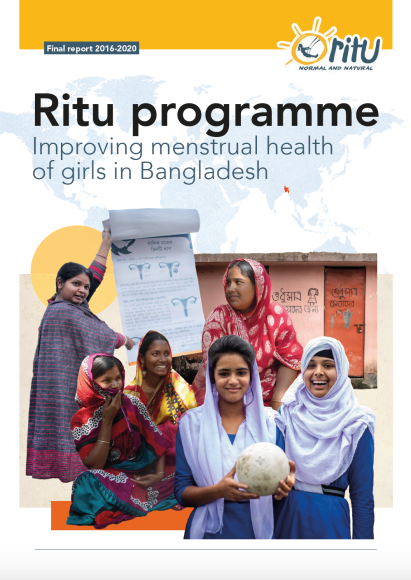Ritu: improving Menstrual Health of girls in Bangladesh
This report showcases our results, including a selection of data from the randomized controlled trial (RCT) that shows the positive impact of the Ritu programme on girls’ menstrual health. At the same time, we provide details on our approaches, reflections and our key lessons learned.
We feel that it’s important to be transparent and open, so that these lessons are available for others too. We hope to inspire donors and organisations to invest in menstrual health.
67% of girls in the Ritu programme feel confident to manage their menstruation at school, compared to 43% in control communities (RCT data).
“With the RCT, we did not only contribute to the evidence base on menstrual health programming. We also learned a lot from our collaboration with the researchers connected to the programme. Based on their advice, we decided to limited the variety of interventions and use evidence to select those that were most likely to achieve the expected impact. This enabled us to really invest in and monitor the quality of each intervention. Moreover, the results can now more easily be linked to specific interventions and we have a simple model that can be scaled-up in different contexts.” - Hilda Alberda, Menstrual Health expert
Read the final report of Ritu:
Example of personal stories to be found in the report:
"Avoid eating egg, meat, fish, milk during menstruation was an ancient tradition in my family for a long time. My mother has been following this tradition and she compelled me to follow the tradition. I also transferred the same knowledge and attitude to my daughter, even not to let her attend school during menstruation. But, my views has been changed after attending the Ritu sessions organised by BNPS. Now I try to persuade my daughter to eat nutritious food, encourage her to be attentive in school, to participate in the sports, because I want my daughter to be a great person in the future." – Mrs Putul Akter


